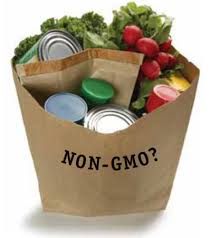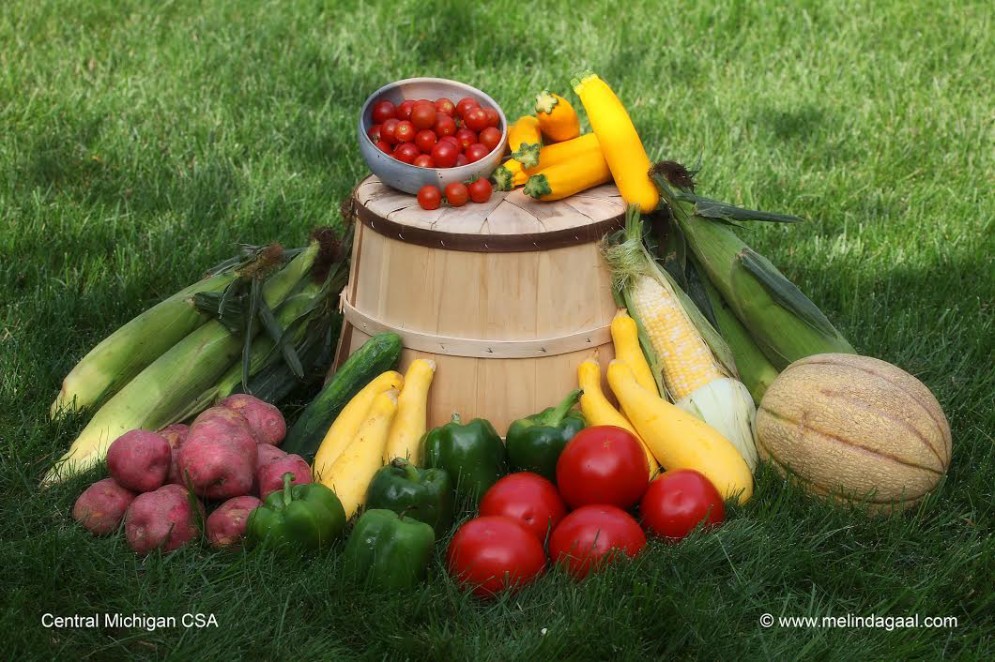 I run a couple roadside farm stands, a multi-location CSA program, and offer our produce at a few local farm markets here in Central Michigan. More and more I get questions about GMO (genetically modified organisms) produce. They range from curiosity, to piercingly suspicious in nature. I though I’d share some of what I’ve learned about GMO products with an emphasis on the items you commonly find at a farm stand or your local farmers market.
I run a couple roadside farm stands, a multi-location CSA program, and offer our produce at a few local farm markets here in Central Michigan. More and more I get questions about GMO (genetically modified organisms) produce. They range from curiosity, to piercingly suspicious in nature. I though I’d share some of what I’ve learned about GMO products with an emphasis on the items you commonly find at a farm stand or your local farmers market.
The first commercially grown genetically modified whole food crop was the tomato (called Flavr Savr), which was made more resistant to rotting by Californian company Calgene. The tomatoes were released into the market in 1994 without any special labeling. Source Note: The name of the tomato…. Basically this is a grocery store variety of tomato and I honestly have no idea if you’ll still find it or a variation at a grocery store or not. I don’t buy tomatoes at a grocery store, and recommend the same to my friends. Canning real homegrown tomatoes gives you a lot of different opportunities to experience tomatoes all winter long, be creative. The Central Michigan CSA members are increasing using this method to enjoy their produce all year long.
The real story behind GMO vegetable varieties is that they just aren’t popular with most produce growers. They were designed with profit in mind mostly and, in some instances, in order to make a more nutritious food. For instance there is a GMO rice that carries vitamins, not normally found in rice. Local produce growers just don’t need the advantages most GMO crops are designed to produce, like shelf life, herbicide resistance and built in pesticides.
GMO’s at the Farm Market- Sweet Corn
There is one crop that does hold some popularity among produce farmers and that is sweet corn. BT corn which is a GMO corn that contains the enzyme BT (Bacillus thuringiensis) Coincidently BT is an approved organic bacterium or enzyme. Many who don’t grow GMO BT corn use BT as a spray, it’s been used for decades. It affects leaf eating worms by attacking their digestive system. It’s found to be harmful to other insects and humans. Regardless of your opinion on BT, many of us just don’t like the concept of genetically infusing it into the food we eat.
Another GMO angle is on round up ready varieties. Sweet corn growers do also grow some round up ready sweet as well. Many of them use a seed that combines both BT and Round Up ready.
In summary, if your shopping for produce at the local farm market or roadside stand then ask about the sweet corn. Debate with your dollars.
Avoiding GMO’s Altogether
Wanting to avoid GMO products altogether? In order to avoid GMO’s in your diet I recommend doing some research in where they are NOT found. It’s a much shorter study than learning what they ARE found. Processed foods are a big magnet for GMO’s. Don’t trust labels either. Just because it’s got the Organic sticker, doesn’t mean it’s GMO free, it’s not.
Are GMO’s Dangerous?
I’ve decided to just not grow GMO varieties of vegetables. I watch the debate and learn more and more about them all the time. At best it is unknown if GMO varieties are dangerous or not. I’ve heard several stories and a lot of hype on both sides of the issue that is for sure.
In 1996, Brazil nut genes were spliced into soybeans by a company called Pioneer Hi-Bred. Some individuals, however, are so allergic to this nut, they go into anaphylactic shock (similar to a severe bee sting reaction) which can cause death.
So there are certainly instances where GMO produce and varieties can cause adverse affects. Don’t be afraid to ask questions about these GMO’s and other potentially harmful chemicals on the produce you buy. There are thousands of non-GMO produce varieties that far out perform their GMO counterparts and great for local growers. We’ll stick to these great tasting varieties and keep our customers and CSA members happy.


0 comments… add one